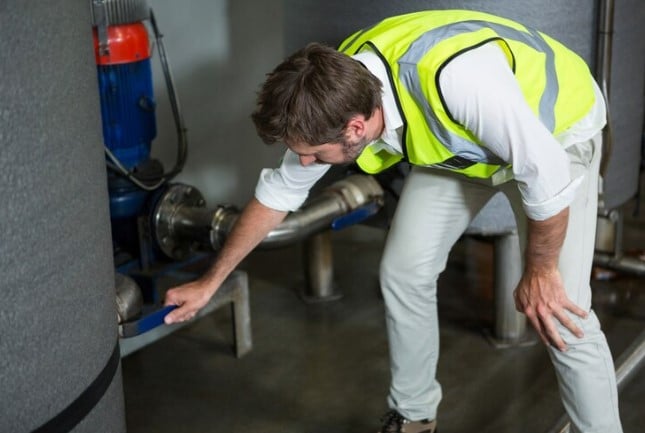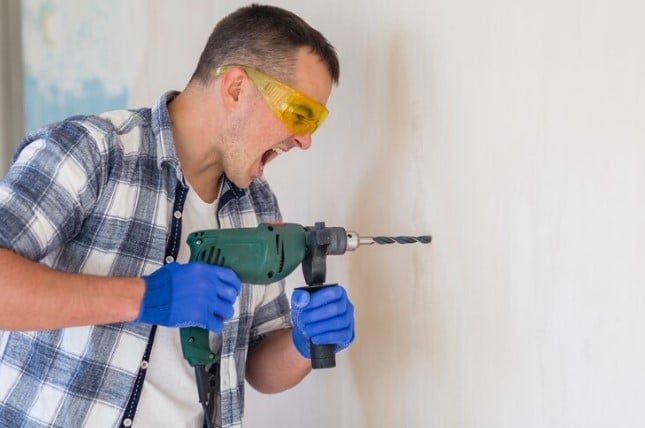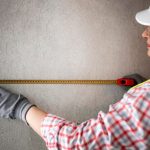Contents
- 1 Building an Understanding of Basement Humidity Concerns
- 2 Comparing Interior and Exterior Waterproofing Methods
- 3 Evaluating the Best Waterproofing Products
- 4 Cost-Efficient Approaches to Basement Waterproofing
- 5 The Process of Sealing Basement Walls
- 6 Professional vs DIY Waterproofing Techniques
- 7 Advantages of Hiring Experts
- 8 Enhancing Home Value with Effective Waterproofing
- 9 Conclusion
- 10 The Best Basement Waterproofing System FAQ
The selection of the best basement waterproofing system is critical to maintaining the dryness and structural integrity of your home’s foundation. A variety of options exist, each with its own strengths to combat moisture infiltration.
From interior sealants to exterior membranes and sump pumps, homeowners must weigh factors such as effectiveness, cost, and installation complexity. Understanding these systems’ intricacies ensures long-term protection against water damage.
Building an Understanding of Basement Humidity Concerns
Moisture level disadvantages can originate from various sources.
- Condensation — humid air meets cold basement walls;
- Runoff — after rain or snow, especially if gutters are clogged or the slope of the ground directs water towards your home;
- Subsurface seepage — groundwater moving through soil and into basements.

Detecting these issues early helps prevent damage. For example, a dehumidifier might address condensation. Proper landscaping can alleviate runoff problems.
Moisture signs
It’s crucial to recognize moisture problem signs early on. Look for mold growth, which suggests persistent dampness. Water stains on walls or floors indicate past leaks or flooding events.
Efflorescence, a white powdery substance on concrete surfaces, signals water evaporation from the material. Addressing these signs promptly can save extensive repair costs later on.
Climate impact
The climate you live in heavily influences basement moisture levels. In humid regions, condensation-related issues are commoner than in arid zones where subsurface seepage might prevail due to irrigation practices.
Soil type also plays a role. Clay soils retain more water than sandy ones, potentially leading to more pressure against basement walls and subsequent leaks. Understanding how climate and soil contribute aids in choosing the best waterproofing system for your situation.
Comparing Interior and Exterior Waterproofing Methods
Interior sealants are applied to the inside walls of a basement. They’re often paint-like or coating substances that can be used on concrete and masonry. These products aim to block minor seepage by sealing pores.
Exterior waterproofing, however, requires digging around the house’s foundation. A barrier is then established outside to prevent water from reaching basement walls in the first place.
Interior methods:
- Easier installation;
- Less invasive.
Exterior solutions:
- More complex process;
- Requires excavation.
The application of exterior barriers is more labor-intensive but addresses root causes like hydrostatic pressure and soil moisture.
Effectiveness comparison
Interior sealants offer a quick fix for dampness but may not hold up against significant water intrusion. They work best for condensation issues or minor leaks.
Conversely, exterior waterproofing provides comprehensive protection by diverting water away before it penetrates walls. It’s considered more effective for long-term prevention of serious water problems.
It’s important to differentiate between interior and exterior approaches as they serve different purposes and have varying degrees of effectiveness depending on the moisture level. Interior waterproofing methods are generally more suitable for situations where light moisture is a concern.
Minor moisture issues or sporadic leaks, which are not major threats to the building, can often be resolved with interior methods such as:
- Applying sealants and waterproof coatings to basement surfaces;
- Installing sump pumps to eliminate accumulated water;
- Using dehumidifiers to maintain humidity levels.
These measures can be quite effective in managing low levels of moisture and are typically less invasive and less expensive than exterior waterproofing.
On the other hand, exterior waterproofing is considered the best option for heavy-duty defense against water intrusion. This approach addresses water issues from the outside of the home, aiming to prevent water from ever reaching the interior.
Exterior waterproofing involves excavating around the foundation, installing drainage systems like French drains, applying waterproof membranes to walls, and adjusting landscaping for better water runoff.
This exterior waterproofing approach, while more time-consuming and expensive than interior options, offers a thorough fix for basements with severe water issues. Homeowners must assess their moisture problems to choose the most suitable waterproofing method.
For light moisture management, interior methods may suffice. However, for more severe water intrusion, an exterior waterproofing system offers a robust defense to protect the structural integrity of the home and maintain a dry basement environment.
Maintenance needs
Interior systems maintenance involves regular checks and reapplication over time as they wear off or crack due to pressure changes within walls.
Exterior waterproofing typically has lower maintenance once installed correctly but might require periodic inspections to ensure drainage systems remain clear of debris which could compromise their functionality.
Maintenance inside:
- Frequent monitoring required;
- Potential need for reapplication.
Maintenance outside:
- Occasional inspection needed;
- Generally less upkeep post-installation.
Selecting the ideal basement waterproofing system involves a careful assessment of your specific situation. It’s essential to analyze the extent of moisture problems, budget constraints, and the unique construction elements of your house.
A well-chosen system will not only protect your basement from water damage but also contribute to the overall integrity and value of your property. Always consult with a professional to ensure that the chosen solution is effectively tailored to address your home’s needs.
Evaluating the Best Waterproofing Products
Water-based sealers are often preferred for their safety and ease of use. They emit fewer fumes, making them better for enclosed spaces like basements. Solvent-based options, however, may offer stronger protection but at a cost to safety and application comfort.
Solvent-based products can be more effective in certain conditions. Yet, they require careful handling due to their flammability and toxic fumes. Water-based alternatives provide ample protection with less risk but may need more frequent reapplication.
Product longevity
The longevity of waterproofing materials is crucial under typical basement conditions where moisture is prevalent. Some products promise years of protection while others might falter within months.
Factors such as humidity levels and water exposure influence durability. High-quality materials resist wear better over time, ensuring your basement stays dry longer.
Contact Willfix
WillFix stands out as a reliable company offering top-notch waterproofing services. Their commitment to using high-standard materials ensures lasting results for customers seeking the best basement waterproofing system.
Customers praise WillFix’s approach from inspection to finished work. They provide clear demonstrations of how their systems keep basements dry at an average cost that reflects value and efficacy.
Cost-Efficient Approaches to Basement Waterproofing
Homeowners seeking cost-efficient solutions for a dry basement can start with simple, budget-friendly measures. One effective approach is applying sealant to cracks and joints. This proactive step prevents water ingress at minimal expense. Another measure includes ensuring proper drainage around the foundation.
Installing gutter extensions diverts rainwater away from the basement walls. It’s an affordable fix that greatly reduces moisture accumulation. Also, homeowners should consider slope grading adjustments to direct water flow away from their homes.
Proactive waterproofing strategies often result in significant long-term cost savings compared to reactive approaches. Regular maintenance, such as cleaning gutters and inspecting downspouts, costs little but prevents costly damage later on.
A sump pump installation might seem like a larger upfront investment but it defends against potential flooding disasters. Investing in a high-quality sump pump ensures a longer lifespan and better performance, safeguarding your basement effectively over time.
The Process of Sealing Basement Walls
Proper preparation is crucial for a durable seal. Begin by inspecting the basement walls for cracks or holes. Clean these areas thoroughly, removing any dirt, mold, or loose material with a stiff brush. If you find mold due to condensation, treat it with a fungicide before proceeding.
Next, ensure the wall surface is dry. Moisture can compromise the sealant’s adherence. For concrete walls especially, this means waiting until there isn’t any sign of dampness from either leaks or ambient humidity.
Sealant application
The choice of sealant depends on your basement’s specific needs and conditions.
For example:
- Masonry paint seals fine for finished basements;
- Epoxy injections are best for repairing foundation walls’ cracks;
- Silicone-based products work well against pipe leaks.
Apply your chosen product evenly across the wall surface using a sprayer or roller designed for that type of sealant. Pay extra attention to joints and where pipes penetrate the walls.
Remember that each product has its own set time. Adhering strictly to curing times ensures optimal performance from what could be considered part of the best basement waterproofing system available.
Professional vs DIY Waterproofing Techniques
Facing the decision to waterproof your basement, it’s crucial to weigh the pros and cons of a do-it-yourself approach versus enlisting professional help. While DIY can be cost-effective and rewarding for those with the necessary skills and confidence, it often lacks the specialized knowledge and guarantees that come with professional services.
On the other hand, hiring experts ensures a comprehensive assessment, high-quality materials, and workmanship that stands the test of time, albeit at a higher cost. Ultimately, the choice should hinge on the complexity of the job, your own expertise, and the value you place on peace of mind.
Precision benefits
Professional waterproofing services come with detailed assessments and solutions tailored to your home’s specific needs. Experts use advanced techniques and materials that ensure long-lasting protection against moisture. Their work often includes a warranty, offering peace of mind.
DIY attempts lack this precision. Homeowners may not identify all the water entry points or choose the right sealants. This can lead to incomplete coverage, leaving basements vulnerable to leaks.
Warranty assurance
Professionals provide warranties for their work, covering both labor and materials used. If issues arise post-installation, they will address them at no extra cost within the warranty period.
DIY waterproofing comes without such assurances. Mistakes can be costly if you need to redo the job or hire professionals after an initial failure.
Common DIY mistakes
Homeowners often make errors like:
- Ignoring proper surface preparation;
- Using inadequate sealant quantities;
- Misapplying products due to lack of experience.
These mistakes compromise the effectiveness of waterproofing efforts and could result in damage or mold growth over time.
Scenarios for DIY
In minor cases of moisture intrusion where professional assessment indicates minimal risk, a well-informed homeowner might tackle waterproofing successfully using high-quality products available on the market.

However, significant seepage problems require professional intervention due to complex repair procedures beyond typical DIY skills.
Professional necessity
Call experts when facing:
- Extensive water damage;
- Structural concerns;
- Persistent humidity despite previous efforts.
They bring advanced equipment, experience, and specialized knowledge crucial for effective basement waterproofing systems installation.
Advantages of Hiring Experts
Waterproofing experts offer access to commercial-grade products. These materials are not available on the consumer market. They provide better protection against water damage. By hiring professionals, homeowners ensure their basements receive the best defense.
Experts use high-quality sealants and barriers that last longer than retail options. This reduces future maintenance costs and enhances durability.
Custom solutions
A professional assessment is crucial for a tailored waterproofing solution. Each basement has unique characteristics that require specific approaches. Experts evaluate these factors before recommending a plan.
Their assessments lead to effective strategies that DIY methods might miss. Tailored solutions prevent water intrusion more reliably, safeguarding your property’s value.
Warranties and guarantees
Professional installations come with warranties and guarantees. These give homeowners peace of mind about the investment in their property’s safety.
These assurances mean any issues arising post-installation are addressed without additional cost to you.
WillFix Waterproofing service stands out as true experts in the field. They treat every basement as if it were their own, ensuring meticulous care is taken with each project they undertake.
They guarantee results by using only top-tier materials without overpricing services. This dedication reflects in customer satisfaction and long-term waterproofing success.
Enhancing Home Value with Effective Waterproofing
An effective basement waterproofing system generally consists of several components working in harmony to prevent water from penetrating the foundation and interior spaces.
This involves:
- Installing sump pumps and drainage systems to divert water from the foundation;
- Applying sealants to walls and floors;
- Using waterproof membranes on exterior walls.
Properly installed, these systems not only protect the structural integrity of your home but also create a healthier living environment by preventing mold and mildew growth associated with damp conditions.
Property appeal
A dry basement boosts a home’s appeal. This space, free from water damage, attracts buyers. Well-maintained basements suggest careful homeownership. Homeowners see increased market value when they prevent water infiltration.
Studies reveal that waterproofing can offer significant ROI. For example, the addition of a sump pump may increase property value by preventing groundwater issues. Buyers appreciate homes safeguarded against potential water ingress.
Conclusion
Determining the optimal solution for basement waterproofing necessitates a nuanced appreciation of humidity-related problems, an assessment of different strategies, and an analysis of financial considerations. The process that spans from product scrutiny to the ultimate implementation is essential to ensure a basement remains moisture-free and conducive to a healthy living environment.
Homeowners must weigh the benefits of professional services against DIY approaches, recognizing that expert solutions often lead to increased property value and long-term satisfaction. The right system hinges on multiple factors, including the specific needs of the structure and the homeowner’s budgetary constraints.
To ensure a well-informed decision, prioritize systems that promise durability and efficacy. Seek professional guidance to navigate the plethora of options available. Remember, an investment in quality waterproofing is an investment in your property’s longevity and your peace of mind. Take action and consult with experts today to safeguard your home against water intrusion tomorrow.
The Best Basement Waterproofing System FAQ
-
Is there any difference between interior and exterior basement waterproofing?
Interior waterproofing seals the basement walls and floor. It prevents water from seeping through the pores of the materials. Exterior waterproofing involves excavating and installing a barrier around the foundation, protecting the basement from outside water.
-
How can I fix minor moisture and leakage problems in my basement?
You can solve minor moisture problems and leaks by applying sealants, installing pumps and using dehumidifiers. Better to hire a Willfix team for this kind of work, even if you can DIY.
-
What advantages and disadvantages do water-based sealants have over solvent-based options?
Water-based sealants are safe, easy to use and suitable for enclosed spaces, but they are less effective. Solvent-based options are more reliable but require careful handling due to flammability and toxicity.
-
Are there any measures to protect my basement from moisture and prevent costly damage?
To prevent loss of basement investment, install gutter extensions and correct the slope. Have your gutters serviced regularly.
